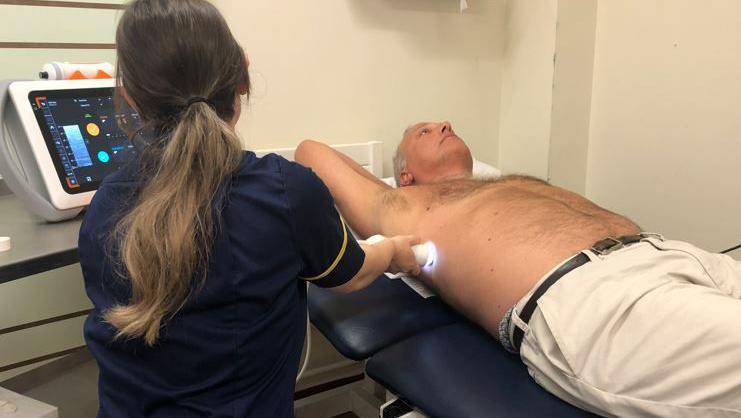Liver disease study recruits 100th patient

University Hospitals Plymouth is taking part in a study to improve the quality of life of those with liver disease
- Published
People with advanced liver disease are taking part in a study to improve their quality of life and help future patients.
University Hospitals Plymouth (UHP) said patients with liver disease often experienced a build-up of fluid in their abdomen, which caused discomfort, and needed to be drained which meant a visit to the hospital.
The REDUCe 2 study, funded by the National Institute for Health and Care Excellence, is seeing if a long-term abdominal drain can improve the quality of life for patients, reducing the need for frequent hospital appointments.
UHP has now recruited the 100th patient to be part of the study.
For patients with advanced liver disease, who are not eligible for a liver transplant, the aim of the treatment is to help with the symptoms of the disease and improve their quality of life.
Research nurse Kelly Bowers said: "We hope that the lived experience of all REDUCe 2 participants throughout the study will help to develop a very clear set of guidelines which will ensure that all patients can receive drainage of ascitic fluid, in a way that works for them and that they prefer at the end of their lives."
Follow BBC Devon on X, external, Facebook, external and Instagram, external. Send your story ideas to spotlight@bbc.co.uk, external.
Related topics
- Published13 November 2024
